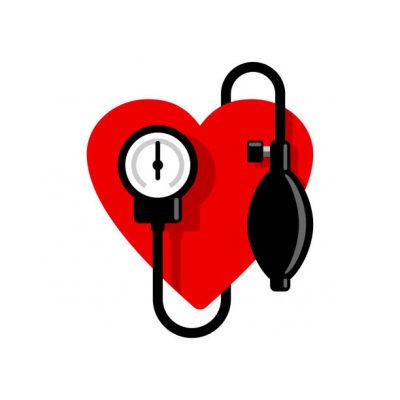The ONE organ responsible for high blood pressure.
What Is Blood Pressure?

What is high blood pressure (hypertension)?
Blood pressure is a measurement of the pressure or force of blood against the walls of blood vessels. If you have hypertension (high blood pressure), it means that the pressure exerted on the walls of the blood vessels in your body is consistently too high. High blood pressure is often called the "silent killer" because you may not realize something is wrong, but the damage is still occurring in your body.
Your blood pressure is made up of two numbers. The top number is the systolic pressure, which measures the pressure on the blood vessel walls during heart contraction. The lower number is the diastolic pressure, which measures the pressure in the blood vessels between heartbeats, when the heart is resting.
For example, a blood pressure of 110/70 is within normal range, but a blood pressure of 135/85 is stage 1 (mild) hypertension, and so on.
Blood pressure categories
The five blood pressure ranges recognized by the American Heart Association are:
Normal
Blood pressure below 120/80 mm Hg is considered normal. If your results fall within this range, stick to heart-healthy habits such as eating a balanced diet and exercising regularly.
Elevated
Elevated blood pressure occurs when readings consistently fall within the range of 120-129 systolic and less than 80 mm Hg diastolic. People with elevated blood pressure are at risk of developing hypertension unless they take steps to control the condition.
Stage 1 hypertension
Stage 1 hypertension is when blood pressure consistently fluctuates between 130-139 mm systolic or 80-89 mm Hg diastolic. At this stage of hypertension, doctors are likely to recommend lifestyle changes and may consider adding blood pressure medication depending on the risk of atherosclerotic cardiovascular disease (ASCVD), such as heart attack or stroke.
Stadium 2 hypertension
Stage 2 hypertension occurs when blood pressure is consistently 140/90 mm Hg or higher. At this stage of hypertension, doctors are likely to prescribe a combination of blood pressure medications and lifestyle changes.
Hypertensive crisis
This stage of hypertension requires medical attention. If your blood pressure suddenly exceeds 180/120 mm Hg, wait five minutes and then check your blood pressure again. If the readings are still unusually high, contact your doctor immediately. This could be a hypertensive crisis.
If your blood pressure is higher than 180/120 mm Hg and you are experiencing signs of possible organ damage, such as chest pain, shortness of breath, back pain, numbness/weakness, changes in vision or difficulty speaking, don't wait for your blood pressure to drop on its own. Call 911.
[cool_tag_cloud on_single_display="local"]









